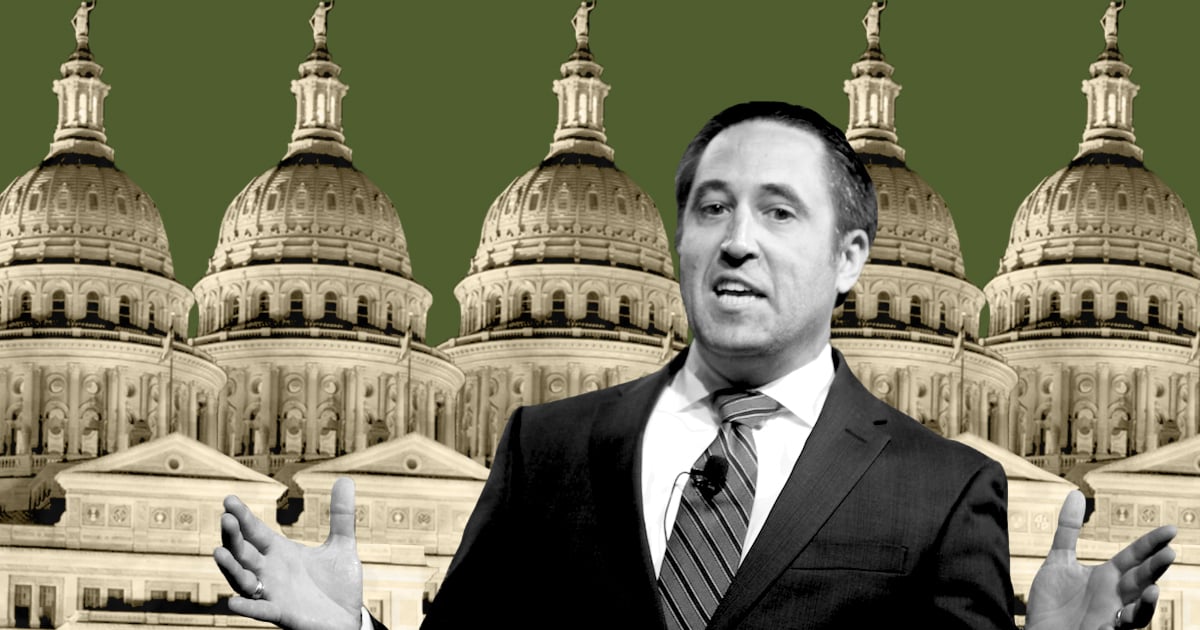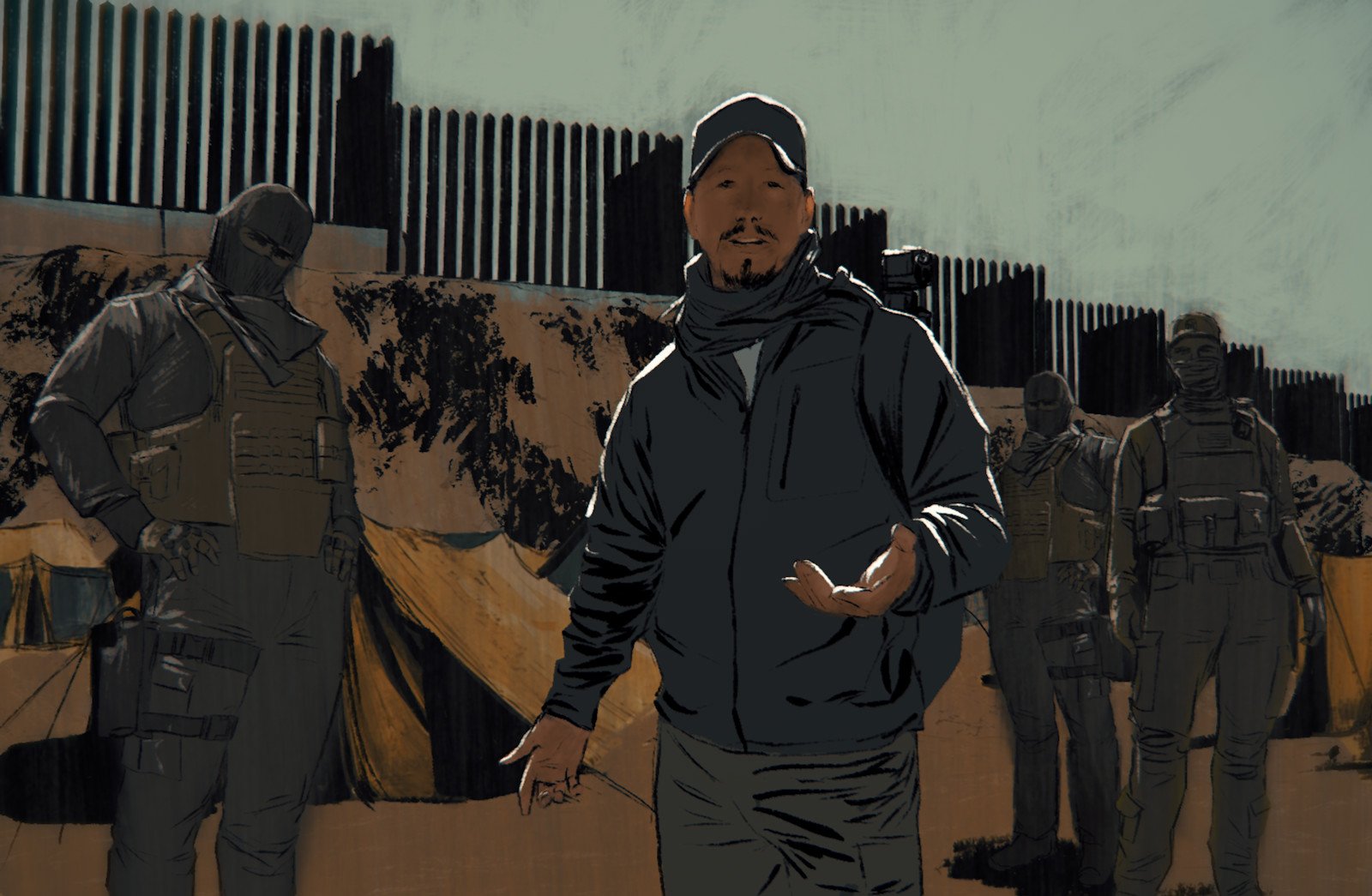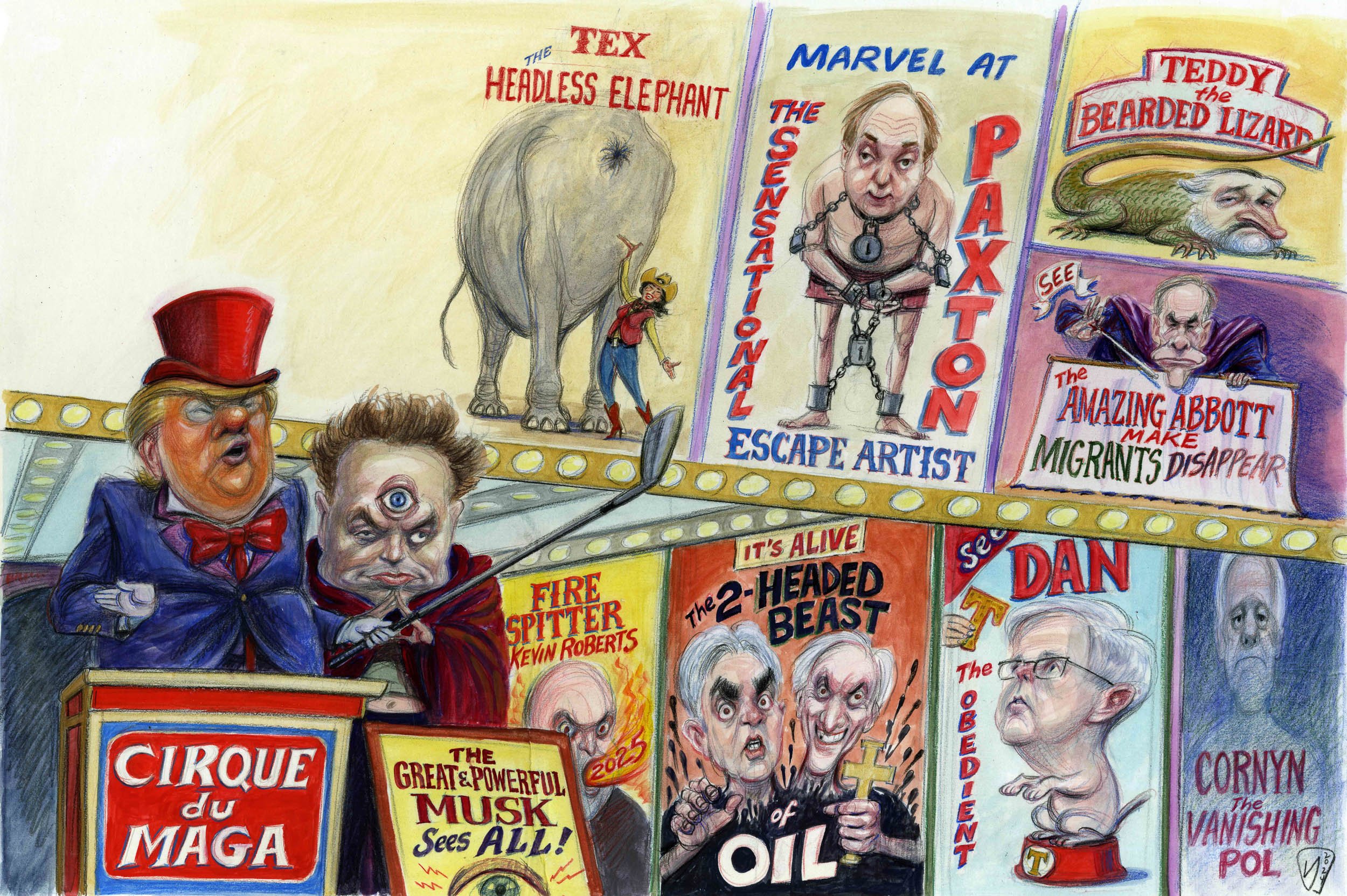Ronnie Dawson Through The Other End of the Telescope
During those terrible years of the 1980s, after our son Lindon was paralyzed in a diving accident, family friend Ronnie Dawson, the indomitable optimist, gave Lindon a fiddle. Eventually Lindon’s finger function returned. He could play music, drive with hand controls and build radio-controlled planes, but he was, and remains today at 47, plagued with the chronic infections and dysfunctions that issue from spinal cord injury.
We were having a tough time of it in the 1980s, but at least Ronnie’s career was rocking. One of his early songs, “Rockin’ Bones,” had been recorded by a hot band called The Cramps, and suddenly he was bigger than he had been in his heyday, a freshly reminted rockabilly idol to a small but passionate group of retro-oriented music fans at home and around the world. With High Noon and other bands he made new recordings, played on Late Night with Conan O’Brien, and took his show all the way to Europe. Along with other performers, he even played a concert at Carnegie Hall. By the late 1990s his schedule had become so complicated that he turned over management duties to his new wife, Christi.
Then, in early 2002, Ronnie’s dentist found a lump in the back of his mouth that turned out to be cancer. He rejected surgery because the doctors said it would probably leave him unable to sing. Chemical and radiological treatments seemed to work, though, and for his 63rd birthday, in August, Christi invited friends and family to their North Dallas home for a celebration. Ronnie and his lifelong Waxahachie musician friends, Mike O’Daniel and Johnny Todd, sang a few numbers, and Lindon sat in playing the fiddle part on “Faded Rose.” It was the musical highlight of his life, and his mother Brenda and I were there, along with his brother Lowell and sister Karen, to see it.
Before Ronnie became an honorary member of our family, he was just the blond guy, 6 feet tall and 140 pounds in cowboy duds, who was dating the speech teacher in the office next to mine at the college where I taught.
He and I jibed from the first, maybe because our lives were so much defined by the small-town, mostly rural, Depression-era attitudes of our parents. His childhood, however, included his parents’ strict religious fundamentalism. Television was forbidden, and he never saw a movie until he was 17. Gladys, his powerful mother, sent him to Waxahachie’s Southwestern Assemblies of God Seminary College and High School, from which he soon fled to play music. Ronnie wrote in his unpublished memoir that he and his band members would sneak into the church in Waxahachie to swipe the bass and then, after their gigs, sneak it back again in time for Sunday service. He won 10 talent contests in a row at the Big D Jamboree in Dallas and became a teenage regular on its Saturday night show. He joined the Light Crust Doughboys. He also had his own band, Steel Rail, in the 1970s, and played country-rock music that went over big with his club-going Dallas fans. Ronnie’s band members included Dallas’ best: Larry White on steel guitar, Paul Vinton on drums, Ron Snider on percussion, Jerry Harris on bass, and Bobby Rambo on lead guitar.
Lindon wasn’t often able to see Ronnie on stage. He sang at Lindon’s and Karen’s weddings, and sometimes at parties at Lindon’s house, but their friendship was mostly restricted to telephone visits. Ronnie always had a TV tuned to cable’s TV Land in the background. Andy Griffith, Ronnie and Lindon believed, embodied Earth’s best hope.
Ronnie was interested in Lindon’s knowledge of the cosmos, and especially in the idea that dead stars could still be seen shining, the light of their explosions having not yet reached Earth. During one of their visits, they decided to build a telescope, maybe take it to the mountains of Fort Davis for a light- and pollution-free view of the sky. When Ronnie told Lindon near the end of 2002 that his cancer had come back, they decided to get moving on the project.
His treatment this time involved experimental injections directly into the tumors in his throat. This meant a lot of trips to the oncology unit at Baylor Hospital over the next several months. But the injections didn’t help, and he grew weaker and lost more and more weight. By late summer of 2003, Ronnie had decided to go into hospice care. Christi called on September 19 to say that Ronnie hadn’t returned my calls because his medication had kept him sleeping all week, except for a couple of trips to the doctors. She said he’d fallen trying to get out of bed. I drove over that day.
“The bottom dropped out,” he said when I came into his room.
Friends and family visited every day during this time, as did Ronnie’s half-brother Louis. They’d shared a father, Pink Archie Dawson, who’d been the bass player for Mel’s Merrymakers, a Texas swing band, until 1936, after which the group morphed into Pinky Dawson and the Manhattan Merrymakers. Pinky died January 5, 1959, of a coronary occlusion, at the age of 58.
On Ronnie’s last day, Tuesday, September 30, 2003, the house was filled with family and friends who took turns sitting with him. He looked up as I came in, but then drifted away. His television was set to TV Land. When I turned the sound down, he opened his eyes and said, “What happened to the TV?”
“I thought you were asleep.”
“You don’t like MacGyver?”
“Uh, I, uh, sure.”
“Pretty good show,” he said. Then he smiled faintly and floated away again.
Lindon and his brother Lowell waited their turns outside, and as I got up to go I remembered the geese. They had flown over the previous April on the day Ronnie and Lindon finished their telescope. Ronnie had watched the birds for a while and said, “I wanna go,” to no one in particular.
I looked at him one more time before leaving. Emaciated as he was, he looked like a giant, featherless bird. He had opened his eyes. I considered reminding him of the geese, but said instead, “Brenda and the boys are waiting to see you.”
“Have fun,” he said, and smiled.
We’d had a lot of fun in our day. He squeezed every happy moment possible from his experiences, but I’ve heard stories about the bottled-up anger that came roaring out of the brimstone of his childhood when he drank too much. And with Ronnie, according to his friend Lenny Stan, now 81 and living in Florida, even a little booze was too much.
In the 1960s, Lenny was the doorman at the Levee, the famous Dallas nightclub where Ronnie headlined. Lenny lived upstairs from Ronnie and his roommate Ed Bernet, their boss and bandleader of the Levee Singers. Ronnie had a new Plymouth Fury convertible, Lenny said, and Ed used to drop cigarette ashes on the carpet. Ronnie wanted to whip him, but Ed was his boss, and as a former football player outweighed Ronnie by 100 pounds. So Ronnie just vacuumed the ashes up, went to a bar, had a few drinks, and threatened to whip the owner instead. Lenny led him away before the cops came. Getting out of there in a hurry, Ronnie drove his ash-free convertible into a bridge.

Ronnie and Ed had clashing egos, Lenny said, but when Ed announced he was getting married, Ronnie was furious, not wanting him to move out. During the ceremony, Lenny sat with Ronnie outside on the lawn as he drank and threw full bottles of champagne against the church wall.
By the time Brenda and I met him in 1970, Zen, exercise, and a disciplined diet had tempered the smoldering fundamentalist flames. In his later years, Christi encouraged him to take up woodworking. I was surprised at first to see him working in his shop, but in a way it wasn’t so different from the work he did in the studio and on stage. He made some pretty good music with his jigsaw, router, table saw, and drill. The art objects he made, and the furniture, and one very fine telescope, had their lyrical aspects, too, I thought.
On a warm April Saturday in 2003 I drove Lindon to Ronnie’s workshop to install the mirrors and eyepieces on the telescope. Lindon was suffering from an infected pilonidal cyst, an open wound on his tailbone that wouldn’t heal. It wouldn’t heal because, sitting in a wheelchair, he could never take the pressure off. The pain made his head hurt and gave him the shakes and the sweats. Five days later he would go in for surgery that would require six weeks of recovery.
Ronnie’s injection therapy at Baylor was also scheduled to begin the next week, so they were intent on finishing the telescope as soon as possible. They still talked about taking it to Fort Davis for a pollution-free view of the stars, some of them dead, maybe, others still burning bright.
They were in pretty bad shape physically, but friendship, the music of Diana Krall and Louis Armstrong, and the Texas sun energized them. They finished before noon, and Christi came out and took some photos. I said, “Will you be able to see Jupiter’s new moon with that telescope?” Lindon said no, but that it was still 10 times more powerful than the one Galileo had used to see Jupiter.
At lunch, Ronnie pureed his food into slurry. He hadn’t been able to swallow solid food in months. Lindon watched a video of Ronnie’s show from a month or so before in Austin-his last. I read through the stacks of supportive and appreciative e-mails from fans from around the world that Christi had printed for him.
We also viewed a tribute from just a few days earlier at Dallas’ Club Dada. The best musicians in town had come to play in his honor. Ronnie attended and even sang one song. He was comfortable with this crowd, not so much with others. He was bothered by “the pity thing,” he said.
Any young fans there that day might have known Ronnie only as the rumble-throated rockabilly patriarch. They wouldn’t have seen him as the teenaged phenomenon with the intense sense of rhythm and the pitch-perfect pubescent pipes. (That Ronnie can still be seen on YouTube singing “Hazel.”) His mother said he’d had the rhythm even as a baby. “He would sit in his daddy’s lap in church and during the singing keep time by slapping on Pinky’s leg.”
After lunch, two pickers from the old days showed up, brothers Sid and Billy King, singing barbers from nearby Carrollton. Pretty soon, Mike O’Daniel walked up the driveway carrying his guitar. In the shade of Ronnie’s workshop, the brothers sang tunes by Merle Travis, Pee Wee King and Bob Wills. Lindon played his mandolin, and we all sang “Blue Moon of Kentucky.” Ronnie sang the Leon Payne tune “I Love You Because.” He said it had been going around in his head all day. Mike did a freestyle version of Lefty Frizzell’s “That’s the Way Love Goes.” Mike would drown in a lake near Waxahachie on July 29, 2006.
There was something cosmic about it all-the music, the friendship, and the handcrafted telescope with the barrel, the wheels to raise and lower it, the mount made of polished white pine and the feet of redwood. Even if it had a mirror a thousand times more powerful than Galileo’s, it couldn’t have improved our view of that moment.
The day ended too soon, but Ronnie’s energy was about shot. Lindon’s sitting-up time had already surpassed his tolerance level, and the back of his wheelchair was doing a number on his wound. I loaded the telescope into my car, the geese flew over, and we said our goodbyes.
After Ronnie died, Lindon asked me to come over to his house and look at Mars through the telescope. That was good, but I wanted to do it the other way around. I wanted to look at Earth from one of the planets in the neighborhood of the star Vega, 30 light-years away. From that point of view, Lindon has not yet had his paralyzing collision with the rocky crag in the Waxahachie Lake spillway. Ronnie’s cancer is still but a vague impulse buried deep in his DNA. He is making some of the greatest music of his life with the Steel Rail Band and with Mike O’Daniel. We are all young stars, and think we will never burn out.
Tom Dodge is a commentator at NPR station KERA in Dallas and book reviewer for the Dallas Morning News. He lives in Midlothian. www.tomdodgebooks.com


